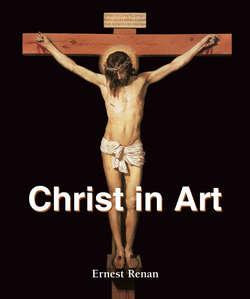Читать книгу Christ in Art - Ernest Renan - Страница 4
На сайте Литреса книга снята с продажи.
The Young Christ
His First Impressions
ОглавлениеJesus was born in Nazareth, a small town in Galilee, which before him was unknown. All his life he was designated by the name of “Nazarene,” and it is only by an awkward detour that the legend succeeds in fixing his birth at Bethlehem. We shall further on see the motive of this supposition and how it was the necessary consequence of the Messianic character attributed to Jesus. The precise date of his birth is unknown. It occurred under the reign of Augustus, towards the year 750 of Rome, probably sometime in the years before 1 C. E., when most Western peoples place his birth.
He came from the ranks of the people. His father Joseph and his mother Mary were in moderate circumstances, artisans living by their toil, a very common condition in the East, which is neither ease nor want. The extreme simplicity of life in such countries, by removing the demand for comfort, renders the privilege of the rich almost useless and makes all voluntarily poor. The town of Nazareth, in the time of Jesus, did not, perhaps, differ much from what it is today. We see the streets in which he played when a child, in these stony paths or small squares which separate the dwellings. The house of Joseph, without a doubt, closely resembled those poor shops, lighted by the door, serving at once for the work-bench, as kitchen and as bedroom, having for furniture a mat, some cushions on the ground, one or two earthen vessels and a painted chest.
The family, whether the product of one or more marriages, was rather numerous. Jesus had brothers and sisters, who seem to have been younger than he. All remain unknown, and it appears that the four persons who are named as his brothers, and among whom one at least, James, attained great importance in the first years of the development of Christianity. Mary, indeed, had a sister named Mary also, who married a certain Alpheus or Oleophas (these two names appear to designate the same person) and was the mother of several sons who played a very considerable part among the first disciples of Jesus. His second cousins, who adhered to the young master, while his real brothers were opposed to him, assumed the title of “brothers of the Lord.” The real brothers of Jesus, as well as their mother, had no importance until after his death. Even then they do not appear to have equalled their cousins in consideration whose conversion had been more spontaneous, and whose character appears to have had more originality. His sisters married at Nazareth, and there he spent his early years. Nazareth was a little town, situated in a fold of land broadly open at the summit of the group of mountains which closes on the north the plain of the Jezreel Valley. The population was from three to four thousand. It is quite cold in the winter and the climate is very healthy. The people are friendly and good-natured; the gardens are fresh and green. Antoninus Martyr draws an enchanting picture of the fertility of the environs, which he compares to paradise. Some valleys on the western side fully justify his description. The fountain from which the life and gaiety of the little town formerly centred has been destroyed; its broken channels now only produce a turbid water.
Having attained a better idea of what constitutes respect for origins, one shall desire to substitute authentic holy places for the mean and apocryphal sanctuaries which were seized upon by the piety of the barbarous ages, it is upon this height of Nazareth that it will build its temple. There, at the point of advent of Christianity, and at the centre of action of its founder, should rise the great church in which all Christians might pray. There also, upon this soil in which sleeps Joseph the carpenter, and thousands of forgotten Nazarenes, who have never crossed the horizon of their valley, the philosopher would be better situated than in any other place in the world, to contemplate the course of human things to find consolation for their uncertainty, to find faith in the divine object which the world pursues through innumerable dejections, and notwithstanding the vanity of all things.
